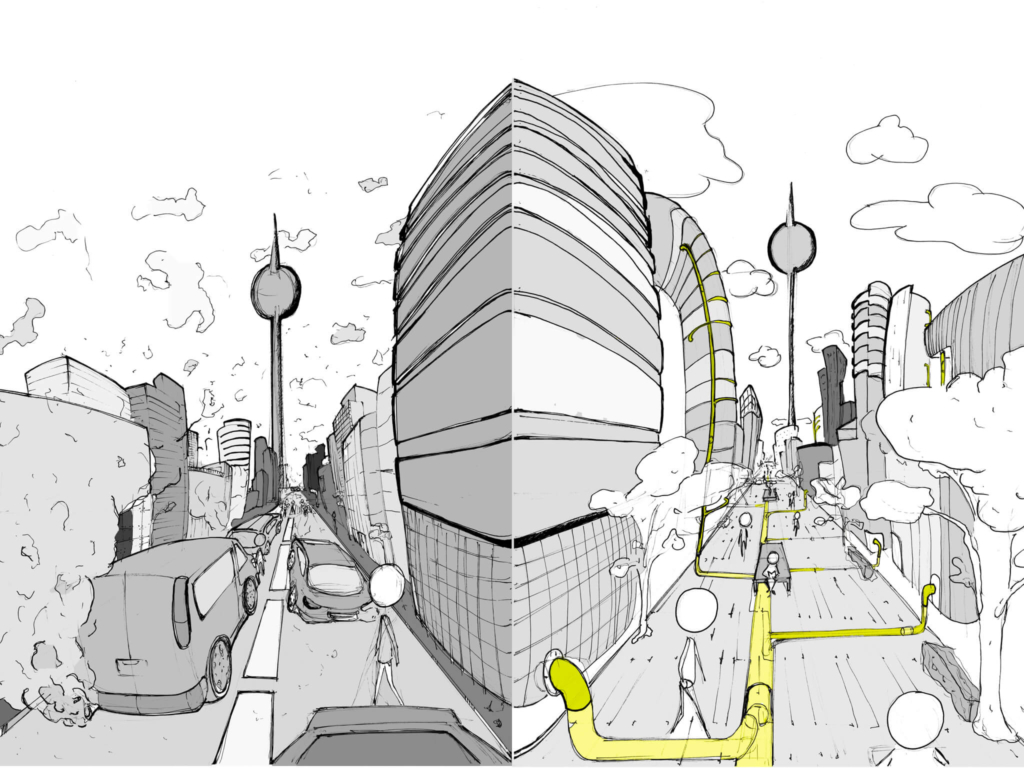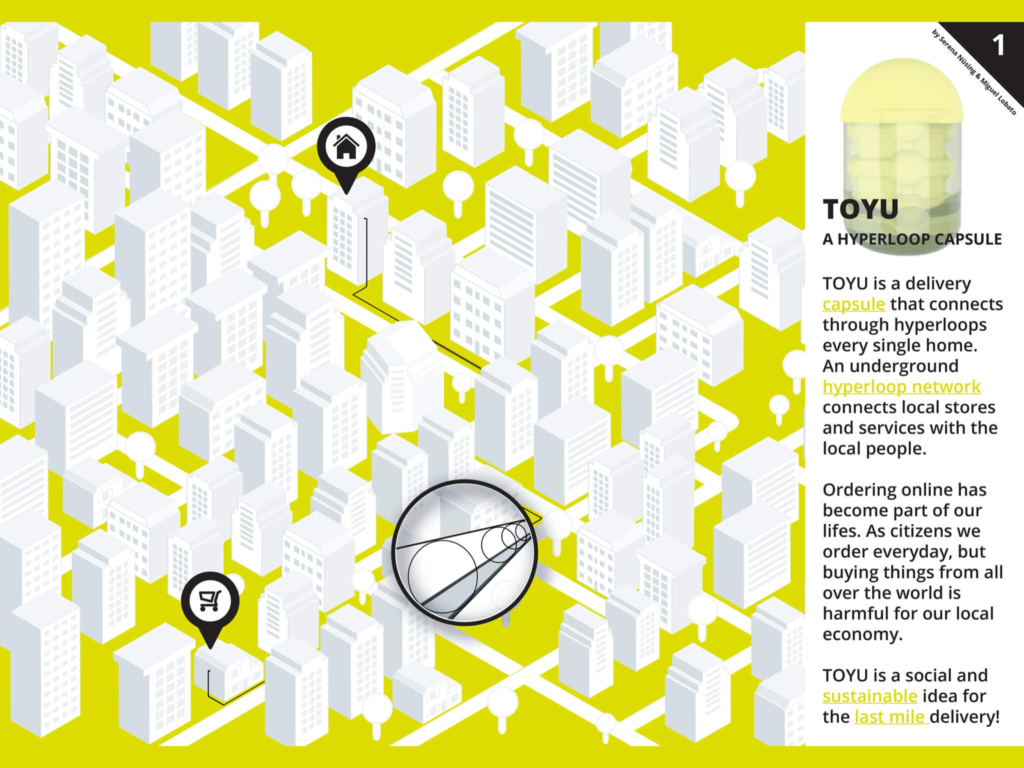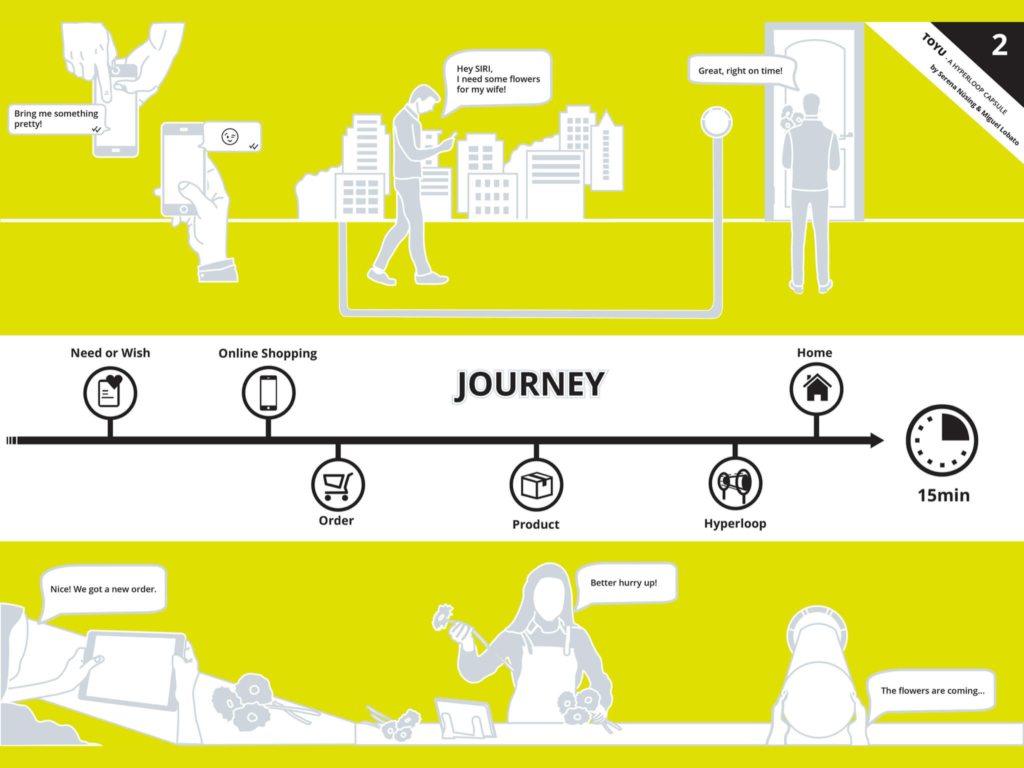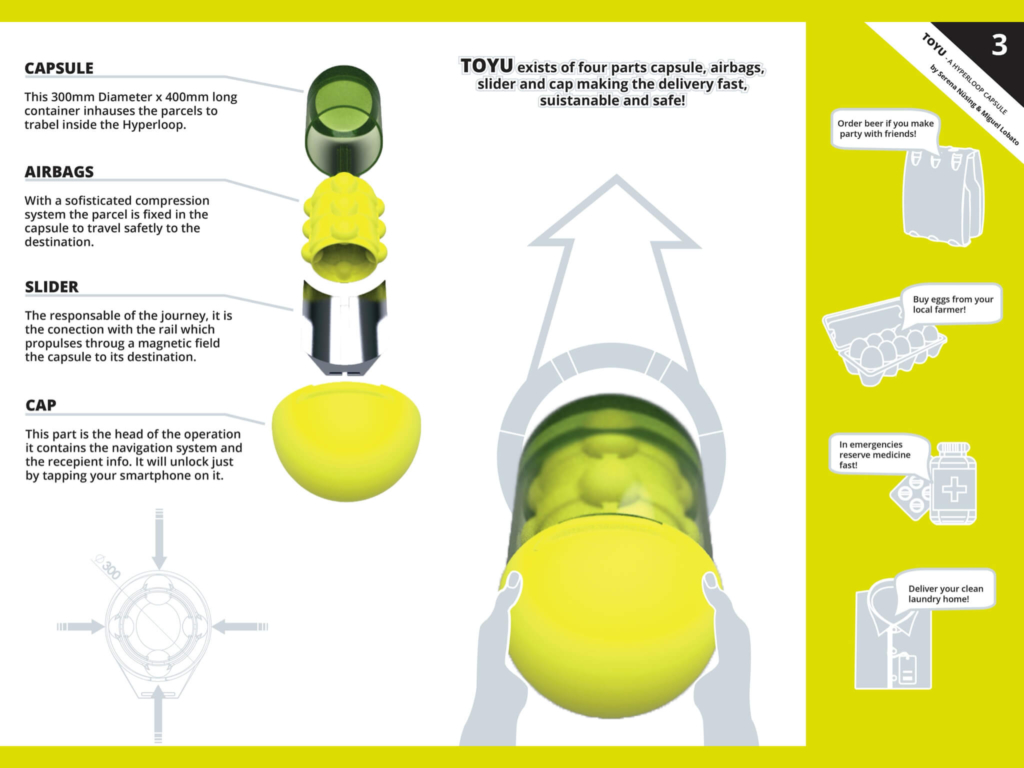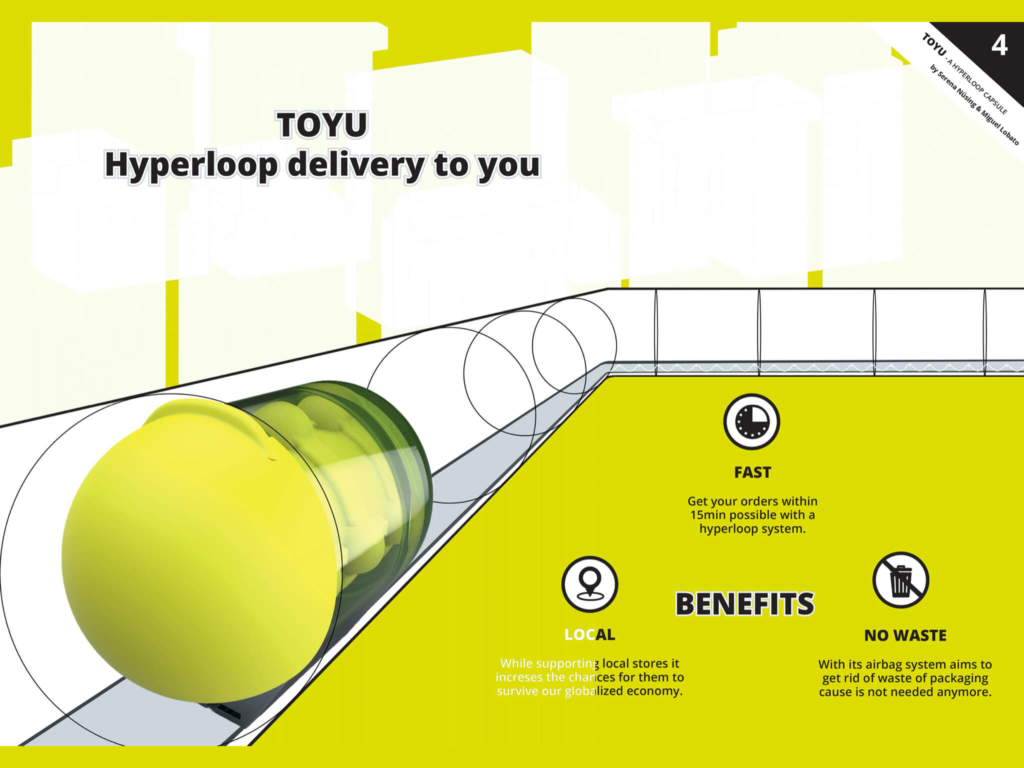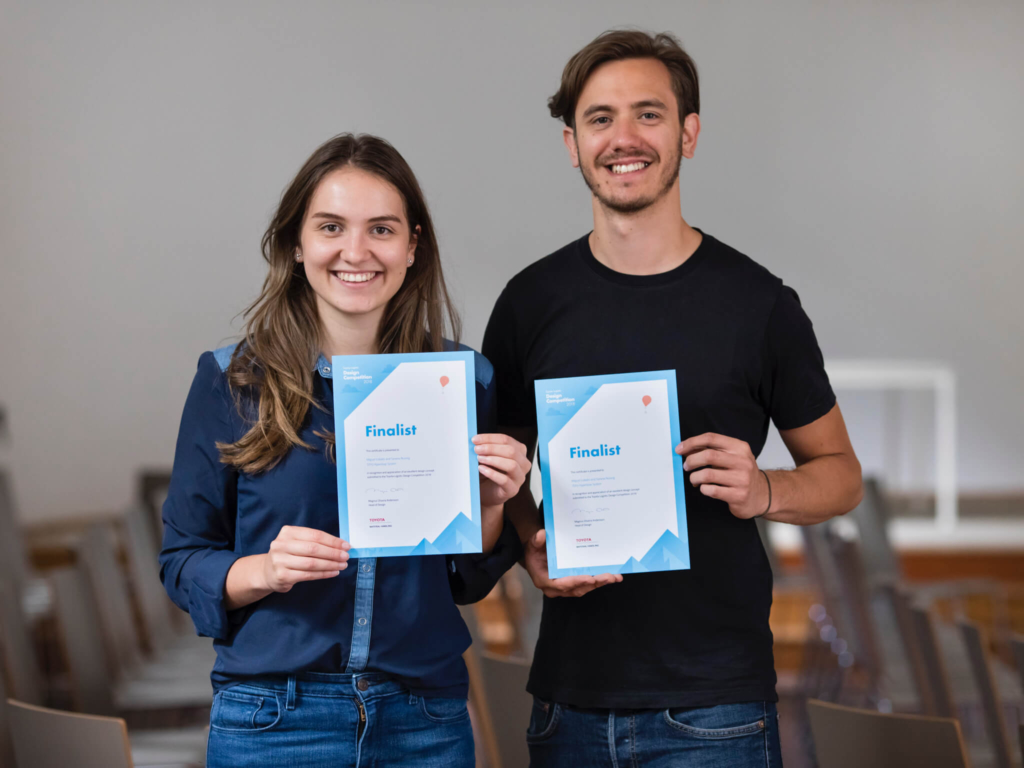For the third time, Toyota Material Handling Europe had launched a Logistics Design Competition. The theme of the 2018 competition was: “Package delivery. Join the revolution.” The challenge was to think about new ways of direct delivery to the customer and to reinvent the last mile of parcel delivery. A logistics solution should be created that is fast, sustainable and, above all, revolutionary.
TOYU is the name of Serena Nüsing’s and Miguel Lobato’s proposal of a “Hyperloop Delivery Network”. Ordering online has become part of our lives, as citizens we order every day, but buying products from all over the world can be harmful to our local economy.
TOYU is a social and sustainable idea for the last mile delivery
TOYU is transported through the city center through a Hyperloop network that extends from the city center to the outer borders. It would float by using magnetic levitation technology and would be able to travel at immense speeds. TOYU consists of four parts: a capsule, an airbag, a slider, and a cap that make delivery fast, sustainable, and safe. The airbag system protects the contents of the capsule and avoids unnecessary packaging waste. TOYU connects local stores and services with the local people and makes the last mile the only mile. It is a proposed system of transport that would see TOYU’s travel at high speeds through a tube that has been pumped into a near vacuum. The Hyperloop Network would be built below ground, at only around 60cm in diameter, taking up a smaller ground footprint than any traditional transportation. The Hyperloop Network could replace bullet trains and would revolutionize our transportation just as the train, plane, and the automobile did.
This project was held as a self-initiated project supervised by Prof. Hatto Grosse (Design for Manufacturing) and was conceptualized in collaboration with Mayara Lafratta and Shohei Okawa.
Participants: Serena Nüsing, Miguel Lobato
Semester: Summer term 2018
Projekt: Self-initiated project
Supervised by Prof. Hatto Grosse (Design for Manufacturing), in collaboration with Mayara Lafratta and Shohei Okawa

